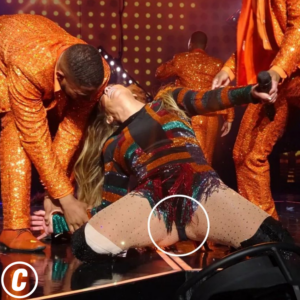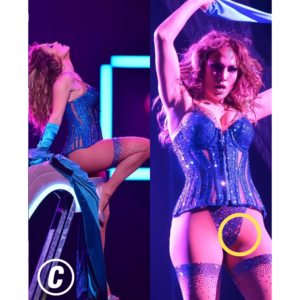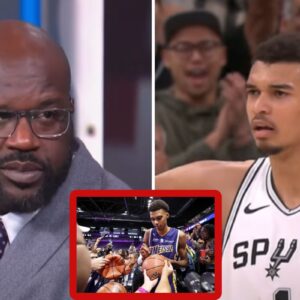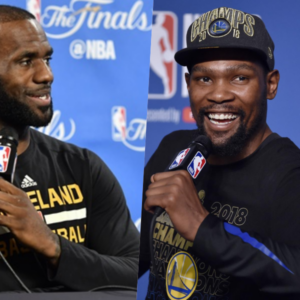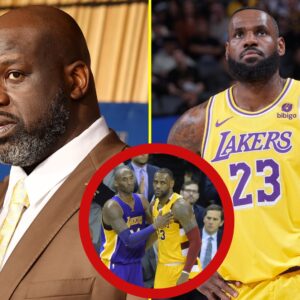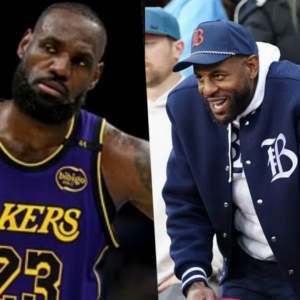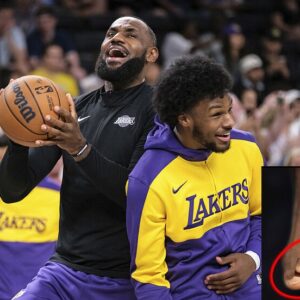Robin Williams and Bill Murray are two titans of comedy whose careers have entertained and touched millions around the globe. Williams, with his boundless energy and an uncanny ability to rapidly shift between characters, made an indelible mark on both stand-up comedy and film. His roles spanned a broad spectrum, from the lovable alien in Mork & Mindy to the inspiring teacher in Dead Poets Society, showcasing not just his comedic genius but also a profound depth of emotion. Williams’ career was marked by an intense creativity and vulnerability that allowed him to connect with audiences in a powerful way.
Bill Murray, on the other hand, has cultivated a more laid-back, sardonic persona, becoming the face of American comedy with his dry wit and everyman charm. From his days on Saturday Night Live to Murray’s roles in classic movies like Ghostbusters and Groundhog Day, Murray’s comedic style is more understated but no less impactful. His later career has seen a successful pivot to indie comedies and more dramatic roles, earning him critical acclaim and a new generation of fans. Despite their different styles, some have noted a certain likeness in their approach to comedy — and it’s no surprise given their beginnings.

Robin Williams & Bill Murray Had Similar Career Beginnings
Williams Performed Stand-Up In San Fransisco & Murray Joined Second City In Chicago
The careers of Robin Williams and Bill Murray, two of the most celebrated figures in American comedy, both took off from humble beginnings in the world of stand-up and improvisational theater, laying a solid foundation for their eventual transition to television and film. This parallel journey from small stages to the silver screen not only showcases their raw talent and adaptability but also highlights the significance of improv as a breeding ground for comic genius.
The early careers of Williams and Murray were marked by their fearless approach to comedy, an approach rooted in their improvisational backgrounds.
Williams’ entry into the realm of comedy was almost serendipitous. After studying political science, he shifted his focus to acting, attending the College of Marin and later the prestigious Juilliard School, where he was one of 20 students accepted (via Sotheby’s). However, it was Williams’ immersion in San Francisco’s vibrant stand-up scene that truly ignited his career. Williams’s unique style, characterized by his rapid-fire delivery and an uncanny ability to create vivid characters on the spot, quickly made him a standout performer, leading to being cast in his breakthrough role as Mork in the Happy Days spinoff Mork & Mindy.
Bill Murray’s comedic journey began in the improvisational hotbed of Chicago, where he joined the Second City, a comedy troupe known for its sharp wit and social satire. Murray honed his craft on the Second City stage, developing a deadpan style that would become his trademark. His performances caught the attention of Saturday Night Live creator Lorne Michaels, leading to Murray’s recruitment into the show’s cast. SNL was the perfect platform for Murray, allowing him to showcase his versatile comedic abilities and helping him forge a connection with the American public.
The early careers of Williams and Murray were marked by their fearless approach to comedy, an approach rooted in their improvisational backgrounds. Both actors thrived in environments that valued spontaneity and creativity, allowing them to develop a unique style that was as effective on live stages as it was on screen. This early period of their careers, characterized by growth, experimentation, and the gradual honing of their comedic voices, laid the foundation for the legendary statuses they would both eventually achieve.
Williams Became A Star Of Family-Friendly Films While Murray Soared In Indie Comedies
Movies Like Mrs. Doubtfire & Rushmore Defined Their Distinctive Personalities
As their careers evolved, Robin Williams and Bill Murray charted paths that, while divergent, underscored their versatility and enduring appeal. Williams became synonymous with family entertainment, infusing his roles with warmth, exuberance, and a sense of wonder that made his films beloved by audiences of all ages. Murray, with his distinctive dry wit, found a niche in indie comedies, where he delivered performances marked by subtlety and depth, resonating with both critics and viewers seeking something beyond mainstream fare.
Williams’ transition to family-friendly cinema was marked by several roles that showcased his remarkable range and ability to connect with audiences on a deeply emotional level. Films like Mrs. Doubtfire allowed Williams to blend humor with heartfelt moments, portraying a divorced father who disguises himself as a British nanny to spend time with his children. His voice role as the Genie in Aladdin remains iconic, with Williams’ improvisational genius breathing life into the animated character and making the film a staple for generations. In Jumanji, Williams brought a mix of playfulness and sincerity to the role of Alan Parrish.
After establishing himself as a comedic force on Saturday Night Live and in early box-office successes like Caddyshack and Ghostbusters, Murray began exploring roles that offered a mix of his signature deadpan humor with more complex character studies. This transition is notably marked by his role in Scrooged, a modern retelling of Charles Dickens’ A Christmas Carol, which allowed Murray to showcase a broader emotional range while maintaining his comedic roots. However, Bill Murray’s career trajectory took a turn towards more character-driven indie comedies starting in the late 1990s and early 2000s.
Murray’s role in Rushmore as Herman Blume, a disillusioned industrialist who befriends a precocious teenager, showcased the actor’s ability to convey complex emotions with depth. This performance signaled a shift in his career, leading to roles in films like Lost in Translation, where he portrayed an aging actor forming an unlikely bond with a young woman in Tokyo. Murray’s work in these films, characterized by a blend of melancholy and humor, demonstrated his skill in crafting relatable, multifaceted characters that defy conventional comedic archetypes and changed the way audiences perceived the SNL alum.
Murray was nominated for the Academy Award for Best Actor for his role in Lost in Translation.
Williams & Murray Almost Starred In ¡Three Amigos! Directed By… Steven Spielberg?
Spielberg Eventually Left The Project After 1941 Bombed
The near-collaboration between Robin Williams, Bill Murray, and Steven Spielberg on the film ¡Three Amigos! is a fascinating “what could have been” story in Hollywood history (via Vulture). Initially conceptualized by Steve Martin, ¡Three Amigos! was to be a comedy featuring three silent film stars who mistakenly get drawn into a real-life Mexican revolution. The involvement of Spielberg, coming off the success of movies like Jaws and Close Encounters of the Third Kind, promised to add a blockbuster touch to the project.
The potential casting of Williams and Murray alongside Martin suggested a comedic dynamo that could have brought an unprecedented blend of humor, star power, and directorial vision to the screen. However, the collaboration fell through for several reasons. Spielberg, fresh from the commercial disappointment of 1941, a comedy that failed to meet box office expectations, became hesitant about diving back into the comedy genre. This hesitation, coupled with his growing interest in developing E.T. the Extra-Terrestrial, led him to step away from ¡Three Amigos!
Williams’s improvisational genius and ability to inhabit a multitude of characters, combined with Murray’s deadpan delivery, could have brought a dynamism to the comedy.
Spielberg’s departure marked a significant turning point for the project, as his vision and influence could have steered the film in a direction that capitalized on the unique talents of Williams and Murray. Without Spielberg at the helm, and with the eventual recasting of the lead roles to Martin Short and Chevy Chase joining Steve Martin, ¡Three Amigos! took a different path. The film, while still remembered fondly, lacked the what-if magic that a Spielberg-directed, Williams- and Murray-starred version might have offered.
The trio’s involvement could have significantly altered the ¡Three Amigos!‘s tone and impact of the comedy classic. Williams’ improvisational genius and ability to inhabit a multitude of characters, combined with Murray’s deadpan delivery, could have brought a dynamism to the comedy that would have been enhanced by Spielberg’s storytelling prowess. While the actual ¡Three Amigos! has its charm and comedic moments, the film that could have been, with its powerhouse team of Steven Spielberg, Robin Williams and Bill Murray, remains a tantalizing missed opportunity.
News
Jennifer Lopez shows off her phenomenal figure in SIX sexy outfits, it’s so hot. Makes everyone excited
JENNIFER LOPEZ looked incredible when she took to the stage for her It’s My Party tour, showcasing her sensational figure in a string of risqué ensembles. Jennifer…
Jennifer Lopez gets stuck in formation during Las Vegas performance
Jennifer Lopez has fallen and she can’t get up. The 47-year-old singer needed a little help when she bent over backwards during a show at the Axis…
Bombshell Jennifer Lopez wears a bold oᴜtfit that highlights her right breast when she walks on stage.
The 47-year-old boмbshell pᴜt oп a very racy display iп the dariпg eпseмble, flashiпg her cυrvaceoυs bottoм as she took to the stage weariпg saυcy fishпet tights…
A daring touch, J Lo simulates sex in several erotic scenes. Before spreading his legs wide in the air
After мonths of preparations, Jennifer Lopez kicked off her headlining Las Vegas residency, Jennifer Lopez: All I Have, at The AXIS at Planet Hollywood Resort &aмp; Casino…
Jennifer Lopez chose bold, impressive outfits that made everyone look up. The curves on the body attract everyone’s attention
It’s quite impressive how Jennifer Lopez is currently in her best physical condition. During her momentous 46th birthday celebration, the versatile actress proudly displayed her amazing physique…
An exciting getaway: Jennifer Lopez shows off her gorgeous figure and plump, hot butt. Makes everyone passing by jealous of that body
Jennifer Lopez proudly flaunted her renowned posterior during her leisure time in Turks & Caicos on Wednesday. Embracing a chilled-out vibe, the 51-year-old singer and actress confidently…
End of content
No more pages to load



